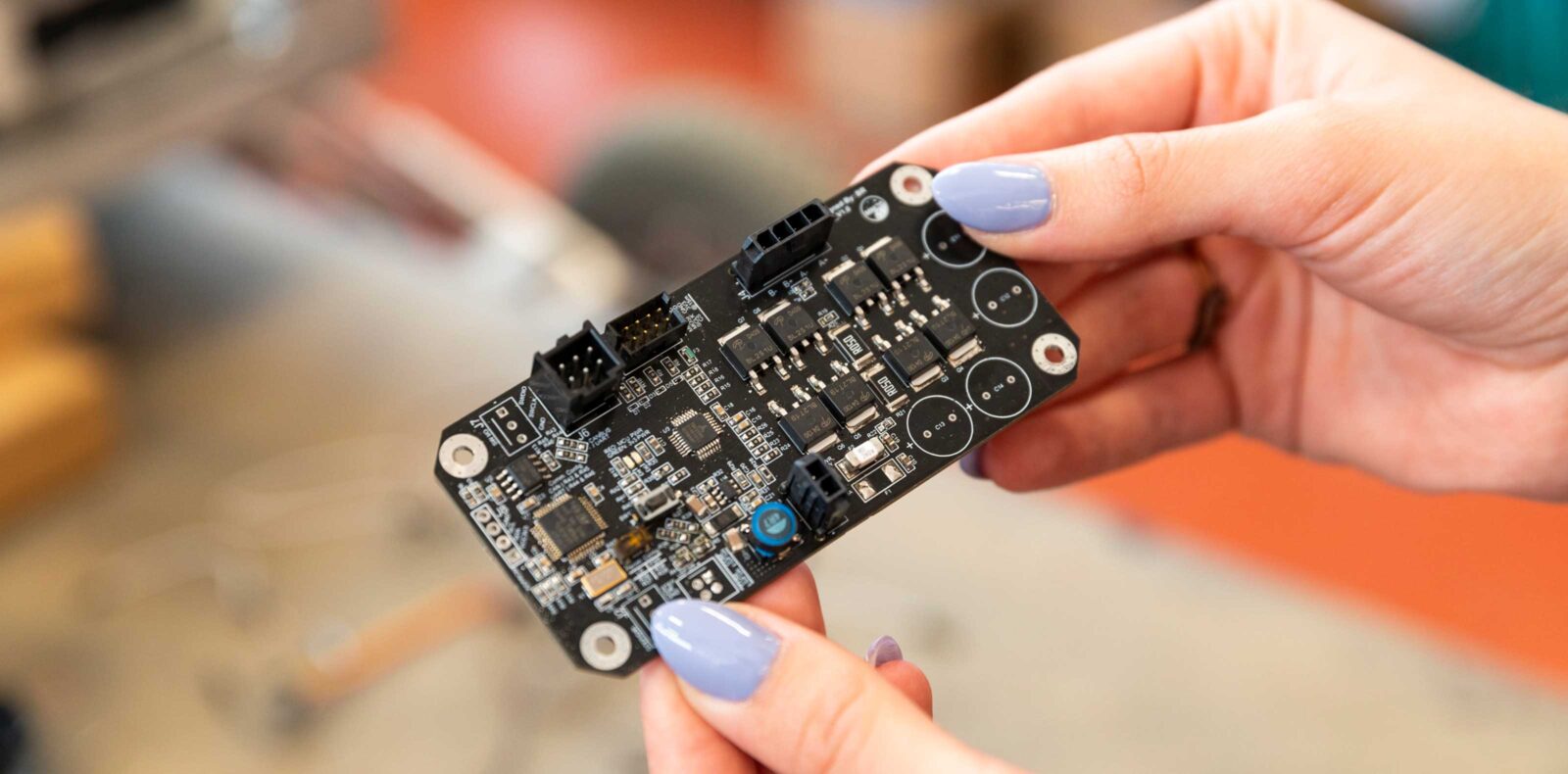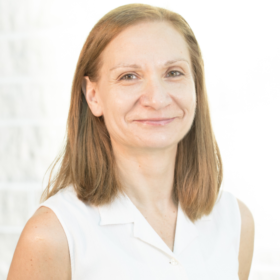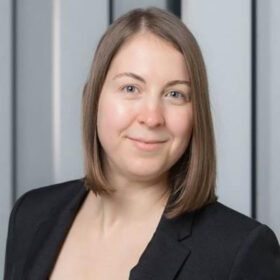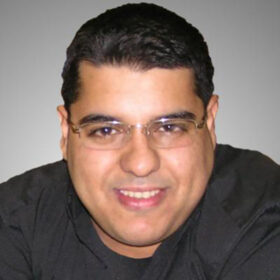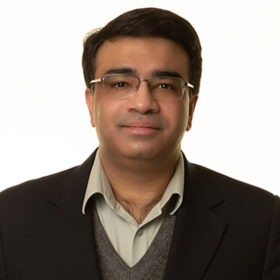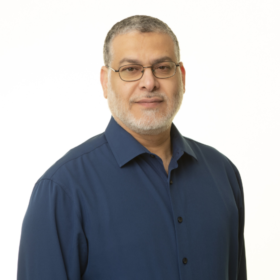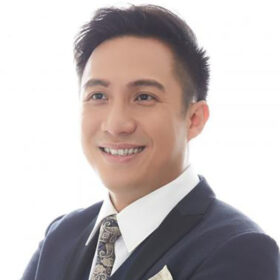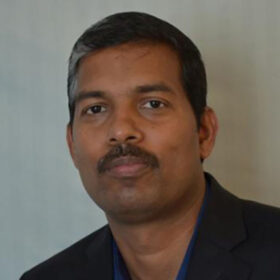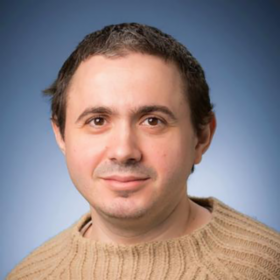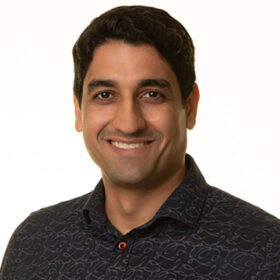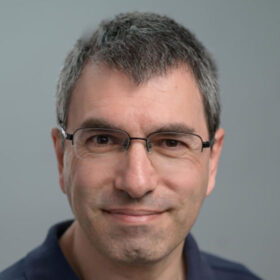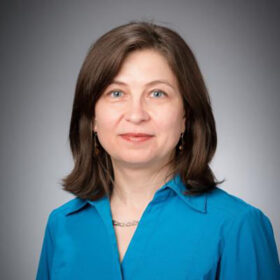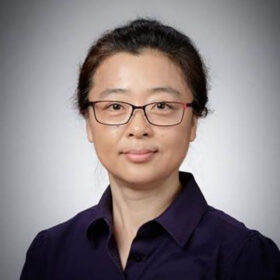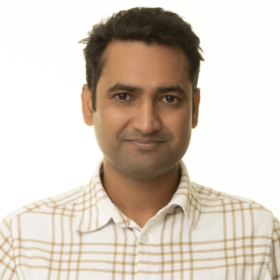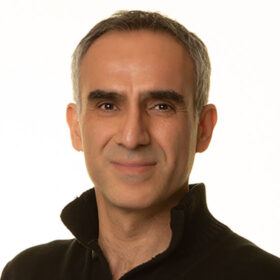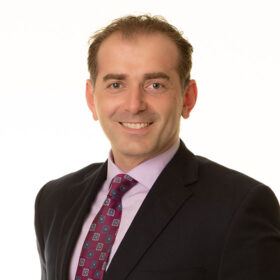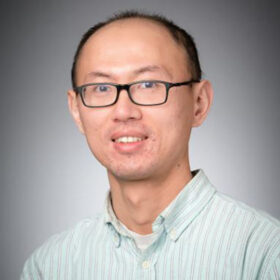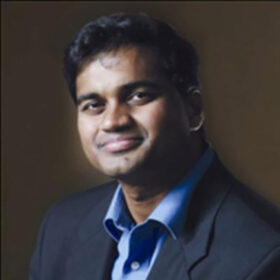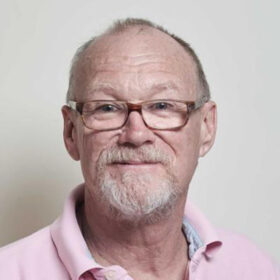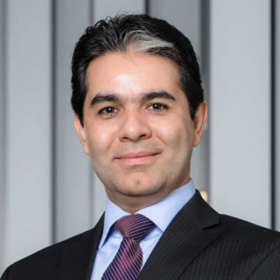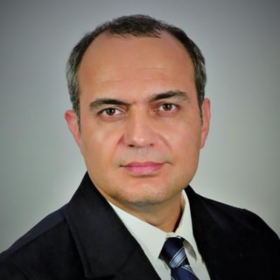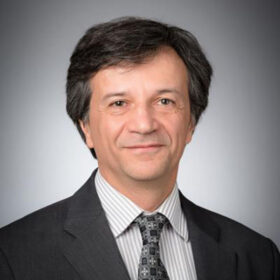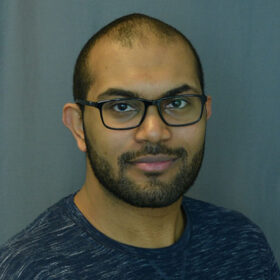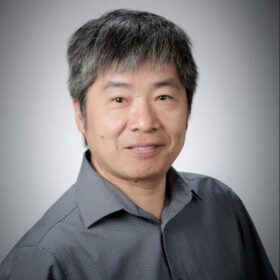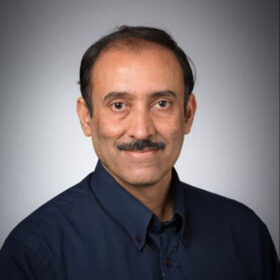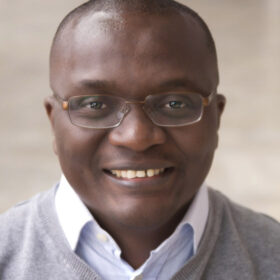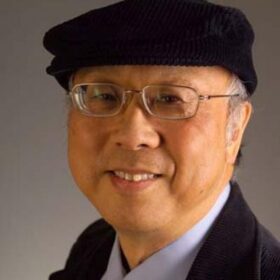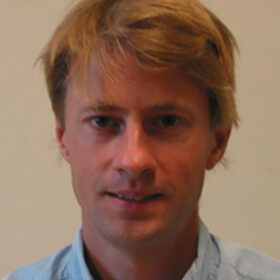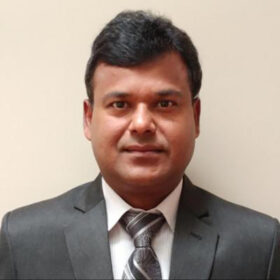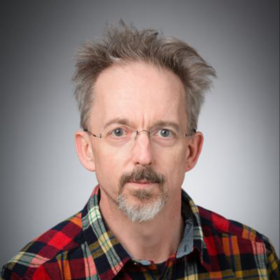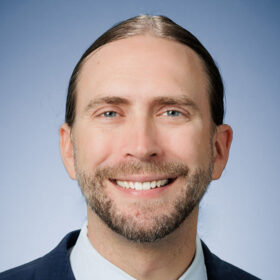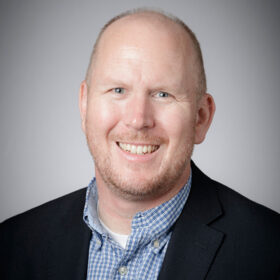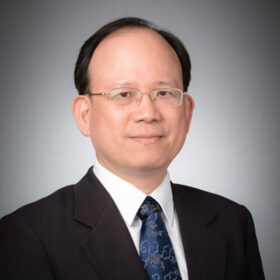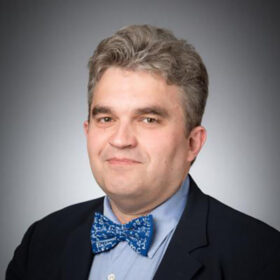-
Department of Electrical and Computer Engineering Graduate Course Listings for Fall 2025 and Winter 2026 (Updated Jan 5, 2026)
All courses are subject to enrollment minimums and instructor availability. Please refer to Mosaic for the most up-to-date information.
Please contact Samantha Leung, Graduate Administrator at ece_grad@mcmaster.ca for any questions. -
Advanced circuit analysis; sinusoids and complex numbers; Laplace transforms with applications; frequency response; 2-port networks; fundamentals of wave propagation; transmission lines and impedance match; radiation and antennas
Three lectures, one tutorial; second term
Prerequisite(s): ELECENG 2CI5 or ELECENG 2CI4 and PHYSICS 1E03
Antirequisite(s): ELECENG 2FH3 or ELECENG 2FH4, ELECENG 2FL3 -
Binary numbers and codes; Boolean algebra; combinational circuit design; electrical properties of logic circuits; sequential circuit design; computer arithmetic; programmable logic; CPU organization and design.
Three lectures, one tutorial, one lab every other week; first term
Prerequisite(s): Registration in a program in Computer Engineering, Electrical Engineering, Engineering Physics (Photonics Engineering Stream), Physics, or Integrated Biomedical Engineering and Health Sciences (IBEHS)
Antirequisite(s): COMPSCI 2MF3, SFWRENG 2DA4 -
Microprocessor systems, introduction to the design process, project development by small teams of students, oral presentations and engineering report writing.
One lecture, one lab, one design studio; second term
Prerequisite(s): COMPENG 2SH4 and COMPENG 2DI4 and either ELECENG 2CI5 or ELECENG 2CI4
Antirequisite(s): COMPENG 2DP4, COMPENG 2DX4 -
Fundamental concepts of programming languages: data types, assignment, control constructs, basic data structures, iteration, recursion, exceptions; imperative and object-orientated paradigms; composing and testing small programs.
Three lectures, one tutorial, one lab every other week; first term
Prerequisite(s): ENGINEER 1D04 or ENGINEER 1P13 and registration in a program in Electrical and Computer Engineering or the Integrated Biomedical Engineering and Health Sciences (IBEHS) program
Antirequisite(s): COMPSCI 1XC3, COMPSCI 2S03, SFWRENG 2S03 and SFWRENG 2XC3 -
-
Data abstraction; algorithm analysis; recursion; lists; stacks; queues; trees; searching; hashing; sorting; sets; relations; functions; modular arithmetic.
Two lectures, one tutorial, one lab every other week; second term
Prerequisite(s): ENGINEER 1D04 or ENGINEER 1P13, COMPENG 2SH4
Antirequisite(s): COMPSCI 2C03, COMPSCI 2DM3, SFWRENG 2C03, SFWRENG 2DM3, COMPENG 2SI4 -
Advanced design methods of digital systems including modelling, simulation, synthesis and verification using hardware description languages, timing analysis and hardware debugging; implementation of computer peripherals in programmable devices.
Three lectures, one tutorial, one lab (three hours) every week; first term
Prerequisite(s): COMPENG 2DI4 and one of COMPENG 2DP4 or 2DX4 or 2DX3
Students taking this course as an elective must receive the permission of the instructor. -
A computer engineering design and implementation project of reasonable complexity to be completed by small groups of students; oral presentations and written reports.
Two lectures, one lab, one tutorial/design studio 1 hour, second term
Prerequisite(s): COMPENG 2DX4 or 2DX3, COMPENG 3DQ5, ELECENG 3EJ4, 3TP3
Antirequisite(s): COMPENG 3DR4, ELECENG 3EY4
Co-requisite(s): ELECENG 3CL4, 3TR4 -
Numerical analysis; linear and nonlinear systems; least squares and matrix decomposition; polynomials, elements of linear algebra, optimization; numerical integration and differentiation; interpolation; engineering applications.
Three lectures, one tutorial; second term
Prerequisite(s): ELECENG 2CJ4; and MATH 2Z03
Antirequisite(s): SFWRENG 3X03, 4X03, COMPSCI 4X03, MECHENG 3F04 -
Design and analysis of correct and efficient algorithms and related discrete mathematics concepts and data structures. Topics include: sets, function relations; graph theory; graph algorithms (graph traversals, topological sort, minimum spanning trees, shortest paths); balanced trees and advanced data structures; algorithmic design strategies (dynamic programming, greedy algorithms, divide-and-conquer, backtracking); introduction to NP completeness and approximation algorithms; introduction to parallel algorithms.
Three lectures, one tutorial, one lab every other week; second term
Prerequisite(s): COMPENG 2SH4, and COMPENG 2SI4 or COMPENG 2SI3
Antirequisite(s): COMPSCI 2C03 -
Introduction to switching and communication networks; packet switching; shared media access and LANs; error control; network layer operation and the Internet; ISDN; wireless networks; performance and simulation.
Three lectures, one tutorial, one lab every other week; first term
Prerequisite(s): ELECENG 3TQ4 or ELECENG 3TQ3
Antirequisite(s): COMPSCI 4C03 -
-
Overview of CISC/RISC microprocessors; performance metrics; instruction set design; processor and memory acceleration techniques; pipelining; scheduling; instruction level parallelism; memory hierarchies; multiprocessor structures; storage systems; interconnection networks.
Three lectures, one tutorial, one lab every other week; first term
Prerequisite(s): COMPENG 3DR4 or COMPENG 2DX4 OR COMPENG 2DX3
Antirequisite(s): COMPSCI 2GA3, SFWRENG 2GA3, SFWRENG 3GA3 -
Advanced internet protocols; IPv4/IPv6; wireless networks; network software tools; Berkeley/POSIX socket programming with C and Python, network message transmission, IP multicast, HTTP, CGI and multimedia networking; quality of service.
Three lectures, one tutorial, one lab every other week; second term
Prerequisite(s): COMPENG 4DK4 -
Embedded processor architectures and SOC organization; EDA tools for hardware/software co-design; co-verification and testability; interfacing; co-processors, soft processors and ASIP design; real-time systems; applications.
Two lectures, one tutorial, one lab every week; second term
Prerequisite(s): COMPENG 3DQ5, or permission of the Department -
4 unit(s)
Industry-standard design methodologies and electronic design automation techniques for digital integrated circuits; advanced hardware description languages; cell-based design; design for testability; functional simulation; gate-level synthesis and optimization; technology mapping; intellectual property cores; static timing analysis; physical design automation; power grid planning; placement and routing; clock network synthesis; parasitic extraction; back-annotated gate-level simulation and signoff checks
Three lectures, one tutorial, one lab every other week, second term
Prerequisite(s): COMPENG 3DQ5, enrolment in Computer Engineering or with permission of the instructor -
-
A research-oriented project under the direct supervision of a faculty member to further foster initiative and independent creativity while working on an advanced topic. This research is based on the experience and results achieved in other research-based project courses.
First or second term
Prerequisite(s): COMPENG 4OJ4 or ELECENG 4OJ4; Prior arrangement with an Electrical and Computer Engineering faculty member, a minimum cumulative GPA of 9.5, registration in Level IV or V of any program in the Department of Electrical and Computer Engineering; or permission of the department.
Antirequisite(s): IBEHS 3I06 A/B -
A research-oriented project under the direct supervision of a faculty member to foster initiative and independent creativity while working on an advanced topic.
First or second term
Prerequisite(s): Prior arrangement with an Electrical and Computer Engineering faculty member, a minimum cumulative GPA of 9.5, registration in Level IV or V of any program in the Department of Electrical and Computer Engineering; or permission of the department
Antirequisite(s): COMPENG 4OK4, ELECENG 4OK4, IBEHS 3I06 A/B -
Fundamental principles and algorithms of machine learning: linear and logistic regression, nearest neighbours, decision trees, neural networks, support vector machines, ensemble methods; clustering and principal component analysis; basics of reinforcement learning;
Three lectures, one tutorial, first term
Prerequisite(s): COMPENG 2SI4 or 2SI3, STATS 3Y03 or HTHSCI 2G03, and ELECENG 3TQ3 or ELECENG 3TQ4
Antirequisite(s): CHEMENG 4H03, COMPSCI 4ML3, STATS 3DS3 -
4 unit(s)
High-performance computing, Code optimization, Loop optimization, Performance analysis, Compilers and basic code analysis, Vectorization, Code specialization and irregular computing, Parallelism in CPU and GPUs, Cache-aware and cache-oblivious algorithms, and runtime systems.
Two lectures, one tutorial, one lab every week
Prerequisite(s): Registration in any Computer Engineering or Electrical Engineering Program, CompEng 2SI3 -
Discrete time signals and systems including z-transform, DFT and FFT; Classical filter theory, FIR and IIR digital filters; effects of finite precision; implementation of DSP systems; adaptive filtering; spectral analysis, signal compression.
Three lectures, one tutorial, one lab every other week; first term
Prerequisite(s): ELECENG 3TP4 or ELECENG 3TP3 -
Digital image formation and representation; filtering, enhancement and restoration; edge detection; discrete image transforms; encoding and compression; segmentation; recognition and interpretation; 3D imagery; applications.
Three lectures, one tutorial, one lab every other week; second term
Prerequisite(s): ELECENG 3TP4 or 3TP3; one of ELECENG 3TQ4, 3TQ3 or STATS 3Y03 or permission of the instructor -
3 unit(s)
Fundamentals of sequence generation and their basic properties; pseudo-noise sequences for communication synchronization; Costas arrays for radar systems; De-Bruijn sequences for cryptography; circuit testing and robotic positioning systems; Gray codes for noise reduction in analogy-to-digital conversions; square-free sequences for information storage in DNA molecules
Three lectures, one tutorial; first term
Prerequisite(s): MATH 1ZC3 or permission of the instructor -
Generation and transmission of bioelectricity in excitable cells; ionic transport in cellular membranes; propagation of electricity within and between cells; cardiac and neural physiology; measurement of extracellular fields; electrical stimulation of excitable cells.
Three lectures, one tutorial; second term
Prerequisite(s): Registration in Level III Electrical and Biomedical Engineering or level IV or V of the Integrated Biomedical Engineering and Health Sciences (IBEHS) Program or level IV of Electrical Engineering
Antirequisite(s): ELECENG 3BB3 -
4 unit(s)
Design of linear control systems using classical and state-space techniques; performance limitation; sampled-data control; nonlinear systems; multi-input multi-output control systems. -
-
3 unit(s)
Introduction to switching and communication networks; packet switching; shared media access and LANs; error control; network layer operation and the Internet; ISDN: wireless networks; performance and simulation. -
-
3 unit(s)
Overview of CISC/RISC microprocessors and their evolution; performance metrics; instruction set design; microprogramming and hardwired control; processor and memory acceleration techniques; memory hierarchies; multiprocessor structures and their performance. -
-
4 unit(s)
Advanced internet protocols; routing, security, encryption; quality of service; ATM, RSVP, video and voice over IP; terminals, gateways and gatekeepers; wireless networks, WDM systems; optical crossconnects. -
3 unit(s)
A. Abbasi
Embedded processor architectures and SOC organization; EDA tools for hardware/software codesign, co-verification and testability; Interfacing; Co-processors, soft processors and ASIP design; Real-time systems; Applications. -
This course provides the fundamentals of the technology of wireless communications. transmission lines and waveguides, scattering parameters, impedance matching, power dividers, directional couplers, microwave resonators and filters, microwave sources and active devices, antenna fundamentals, microwave and antenna measurements.
Three lectures, one tutorial, one lab every other week; first term
Prerequisite(s): ELECENG 2FL3 or ELECENG 3FK4 or ELECENG 2CF3 -
4 unit(s)
A. Mohammad Alikhani
Analysis of unsymmetrical electrical systems, load flow studies, dynamic stability of electrical power systems, power system protection, emerging systems and issues relating to electrical power quality and the impact thereof on plant and customer loads, new generation and connection concepts for large electrical power systems with regard to sustainable energy resources, their management, technical challenges and solutions, high voltage DC (HVDC networks, Smart grids. -
Fundamentals of electric motor drives are studied. The operating principles of different electric motor types and drives, speed and position control, starting, and braking are covered. Three lectures, one tutorial, one lab every other week; second term
-
-
4 unit(s)
High-performance computing, Code optimization, Loop optimization, Performance analysis, Compilers and basic code analysis, Vectorization, Code specialization and irregular computing, Parallelism in CPU and GPUs, Cache-aware and cache-oblivious algorithms, and runtime systems.
Two lectures, one tutorial, one lab every week
Prerequisite(s): Registration in any Computer Engineering or Electrical Engineering Program, CompEng 2SI3 -
3 unit(s)
Staff
A/D conversion; digital modulation; frequency hopping; code-division multiplexing; matched filters; equalization; optimal receiver design; entropy; coding; data compression; capacity of band-limited Gaussian channel. -
-
3 unit(s)
Staff
Classical filter theory; DFT and FFT; FIR and IIR digital filters; effects of finite precision; implementation of DSP-based systems; adaptive filtering; signal compression. -
-
3 unit(s)
G. Sharma
Cross-listed as BIOMED 6TN3
Digital image formation and representation; filtering, enhancement and restoration; edge detection; discrete image transforms; encoding and compression; segmentation; recognition and interpretation; 3D imagery; applications. -
3 unit(s)
Cross-listed: CSE 731
This course is intended as a first-semester graduate course on linear systems theory, design, and implementation with application to signal processing, communications, estimation, and control. The objective is to present a comprehensive coverage of the basic tools needed by an electrical engineering graduate student specializing in the above areas. -
-
3 unit(s)
Concentrates on recognizing and solving convex optimization problems that arise in engineering. Convex sets, functions, and optimization problems. Basics of convex analysis. Least-squares, linear and quadratic programs, semi-definite programming, minimax, extremal volume, and other problems. Localization methods. Optimality conditions, duality theory, theorems of alternative, and applications. Interior-point methods. Applications to signal processing, control, circuit design, computational geometry, statistics, and mechanical engineering. The prerequisites are – a good knowledge of linear algebra and willingness to program in Matlab; exposure to numerical computing, optimization, and application fields helpful but not required; the engineering applications will be kept basic and simple.
Cross-listed: ECE 710 / CSE 710 / MECHENG 716
TERM 2 -
Cross-listed: ECE 712 and BIOMED 712
Matrix decompositions: eigen-decomposition, QR decomposition, singular value decomposition; solution to systems of equations: Gaussian elimination, Toeplitz systems; least square methods: ordinary, generalized and total least squares, principal component analysis. -
-
3 unit(s)
Switched Reluctance Machines (SRM) differs from other electric machines due to its simple construction and lack of coils or permanent magnets on the rotor. The simple and low-cost construction of SRM makes the modelling, analysis and controls more challenging. In this course various characteristics of SRM will be explored including modeling, converters, control, materials, thermal management, and acoustic noise vibration. Students will utilize the course material to design an SRM in their group project assignment. -
3 unit(s)
A course on the analysis, simulation and design of power converter systems. Main topics include: high-power multi-pulse rectifiers, multilevel voltage and current source converters, pulse width modulation, harmonic reduction techniques, modeling and simulation techniques, and industrial applications. Important concepts are illustrated with design projects using Matlab/Simulink.
Cross-listed: ECE 720 / MECHENG 720
TERM 1 -
3 unit(s)
S. Hranilovic
Entropy and mutual information. Discrete memoryless channels and discrete memoryless sources, capacity-cost functions and rate-distortion functions. The Gaussian channel and source. The source-channel coding theorem. Linear codes.BCH, Goppa, Reed-Solomon, and Golay codes.Convolutional codes.Variable-length source coding. -
Cross-listed: ECE 724 / MECHENG 721
TERM 2 -
3 unit(s)
The course objective is to provide a broad introduction to common machine learning approaches and their underlying principles. The intended topics are: linear methods for regression and classification, nearest neighbours, decision trees, bias-variance trade-off, neural networks (including deep neural nets, convolutional nets, generative adversarial nets and variational autoencoders), clustering, principal component analysis, Gaussian mixture models and the EM algorithm, basics of reinforcement learning including temporal difference learning (Sarsa, Q-learning, expected SARSA, SARSA with function approximation) and policy gradient methods. -
-
3 unit(s)
This course focuses on resource management and performance analysis in transporting multimedia traffic in wireless communication networks. Topics include traffic characteristics, connection admission control, packet scheduling, access control, and mobility and handoff management. -
3 unit(s)
AC machine modeling and their control design tools are presented. The focus is on permanent-magnet (PM) and induction machines (IM) supplied by voltage-source inverters. Field-Oriented Control, with and without mechanical sensor, is developed. Common failures in adjustable speed drives are introduced and their effect on the drive performance is analyzed. Fault-tolerant drives are studied and some practical examples from industry are presented. Principal concepts are developed with projects using MATLAB/Simulink -
3 unit(s)
Central to computer vision are the mathematical models governing image formation and methods for processing and recovering information based on the model and the image data. In this course we concentrate on statistical and geometrical models of visual data. Assuming a statistical model for the visual data, we talk about learning and inference. We cover modeling of the data densities, regression and classification methods and how we can use graphical models (e.g., Vitterbi, belief propagation) to solve learning and inference problems. In the other half of the course we take a geometrical approach to image formation and look at problems such as image blending and stitching and 3D reconstruction. -
3 unit(s)
-
Cross-listed: ENG PHYS 740 / ECE 740
Prerequisite(s): Enrollment in graduate program in Engineering Physics
This course provides a fundamental in-depth knowledge of the theory of operation, modeling, parameter extraction, scaling issues, and higher order effects of active and passive semiconductor devices that are used in mainstream semiconductor technology. There will be a comprehensive review of the latest models for the devices that are valid out to very high frequencies and the use of physical device modeling/CAD tools. A review of the latest device technologies will be presented. The course will be a prerequisite to the other applied courses in microelectronics. -
-
3 unit(s)
The course provides an in-depth introduction to the theory of error-correcting codes. It includes both algebraic codes (e.g., Hamming, Generalized Reed-Solomon, and BCH codes) as well as combinatorial codes (e.g., constant-weight codes). The course covers code construction, and fundamental bounds on code parameters. Practical aspects of code representation, finite field arithmetic, and encoding/decoding algorithms are also discussed. -
3 unit(s)
This course offers a comprehensive understanding of analog integrated circuits (ICs) using CMOS technology, covering their operation, analysis, modeling, design, layout, and applications. It provides both foundational principles and advanced techniques, including a detailed study of key analog blocks, operational amplifiers, and oscillators. It will also discuss advanced topics in analog design such as frequency response, noise, and feedback. Emphasis is placed on applying these concepts to cutting-edge applications in domains like IoT, biomedical devices, and high-speed communications. -
-
-
3 unit(s)
Cross-listed: CSE 753
The course provides fundamental knowledge in the theory and practice of antennas used in modern wireless systems. It starts with an introduction into the theory of electromagnetic radiation. Fundamental antenna parameters are described in conjunction with the basic antenna measurement techniques. The course proceeds with classical antenna problems such as infinitesimal dipoles, wire and loop antennas, antenna arrays, reflector and horn antennas. Special attention is paid to printed antennas and their applications to wireless systems. -
3 unit(s)
Photonic devices and circuits are key components used for lightwave generation, amplification, transmission and detection in communication systems and networks. Photonic devices and circuits that utilize primarily photons, in conjunction with electrons can offer the tremendous bandwidth which is the key to a variety of applications, especially broadband communication systems and networks. This course will focus on the modelling of passive device physics through numerical approaches, the simulation of device terminal performances through mixed analytical and numerical methods and the extraction of device behaviour models. This course will also cover circuit level simulation for a variety of monolithic or hybrid integrated photonic circuits constructed on those devices. -
-
3 unit(s)
Lightwave communication has emerged as the undisputed transmission method of choice in almost all areas of telecommunication, mainly because it offers unrivalled transmission capacity at low cost. This course will mainly focus on the design and simulation of the physical layer of lightwave communication systems and networks based on the advanced discrete and integrated photonic devices and optical fibers. -
Due to the abundant reusable license-free optical spectrum, Optical Wireless Communications (OWC) has become a promising technology for enabling future wireless communication networks, including beyond fifth-generation/sixth-generation (B5G/6G) mobile communication networks, to cope with the explosive increase in the demand for high data-rate communications and the massive connectivity of the emerging Internet-of-Things (IoT). This course will provide an overview of the fundamentals of the theory and practical implementations of OWC. Four important aspects of OWC will be covered: (i) the fundamental principles of OWC, (ii) devices and systems, (iii) modulation techniques, and (iv) channel models and system performance analysis. Different challenges encountered in OWC as well as possible solutions and current research trends will also be covered.
-
3 unit(s)
Hypothesis testing, decision criteria, detection of signals in noise; theory of parameter estimation, Bayes estimate, maximum likelihood estimate, Cramér-Rao bound, linear mean square estimation, Wiener filtering, Kalman filtering, applications to communication and radar systems. -
-
3 unit(s)
This course will introduce the advanced concepts and algorithms for multisensor-multitarget tracking under realistic conditions (with imperfect sensors and measurement uncertainties). In addition, this course will deal with multisource information fusion with applications to communications, signal processing and target tracking. -
3 unit(s)
Cross-listed: CSE 791 and MECHENG 771
The objective is to present a comprehensive coverage of advanced estimation techniques with applications to communications, signal processing and control. In addition to theory, the course also covers practical issues like filter initialization, software implementation, and filter model mismatch. Advanced topics on nonlinear estimation and adaptive estimation will be discussed as well. -
-
3 unit(s)
The principle themes are to characterize the time evolution of the scattered field in terms of stochastic differential equations, and to illustrate this framework in simulation and experimental data analysis. The physical models contain all correlation information and higher order statistics, which enable radar and laser scattering experiments to be interpreted. An emphasis is placed on the statistical character of the instantaneous fluctuations, as opposed to ensemble average properties. This leads to various means for detection, which have important consequences in radar signal processing and statistical optics. There are also significant connections with ideas in mathematical finance that can be applied to physics problems in which non-Gaussian noise processes play an essential role. -
-
3 unit(s)
This course provides a fundamental knowledge in nanotechnology. It focuses on the new
physical phenomena due to the reduction of device dimension and the new applications as a
result of these new phenomena. The topics include nano-materials, nano-processing,
nanoelectronics, nano-photonics, nano-biotechnology, nano-MEMS and nano-integration.
Students will learn what should be considered in the nano-world, what new applications we
might be benefited from, and what precautions we need to pay attention when dealing with
issues in the nano-world. -
3 unit(s)
Cross-listed as ECE 780 and BIOMED 702 and MED PHYS 702
This course will complement Medical Imaging Systems I. In this course, imaging methods that rely on non-ionizing radiation will be discussed. The course content focuses on magnetic resonance imaging (MRI), in vivo nuclear magnetic resonance (NMR), ultrasound (US), and optical imaging methods. Advanced concepts such as multi-modality imaging approaches, image fusion, and functional medical image processing will be discussed. -
3 unit(s)
This course will cover methodologies for testing, modeling, design, and state estimation of battery
energy storage systems. There will be weekly lectures and hands on experimental labs. In the
first six labs students will perform experiments to determine the characteristics of a battery cell.
Experimental tests will include open circuit voltage, resistance, capacity, vehicle drive cycles or
other application profiles, thermal characterization, and aging. From these tests state of charge,
power capability, loss, vehicle range, and other characteristics will be determined via analytical
and machine learning based methods. In the final five labs, students will work on an experimental
based group project using a battery cell of their choice. Groups will select a creative way to
present their results, such as through videos, a business plan, website, or open access datasets
or algorithms. Overall, students will gain the skills and experience to allow them to design and
manage state of the art energy storage systems for a wide range of applications. -
(This is a zero-credit course)
Graduate students in electrical and computer engineering will develop their skills in communicating their research to a broad audience via a series of workshops and coaching sessions, culminating in a graduate student research presentation day. -
3 unit(s)
(This is a zero-credit course)
Antirequisite(s): ECE 790
Graduate students in electrical and computer engineering will develop their skills in communicating their research in written and oral forms to a variety of audiences via a series of lectures and workshops, culminating in a graduate student research presentation day. -
3 unit(s)
Cross-listed: ECE 796 / BIOMED 796 / CSE 796
This course provides a solid conceptual and quantitative background in the modeling of biological neurons and how they function as computational devices. Practical experience will be gained in modeling neurons from a number of perspectives, including equivalent electrical circuits, nonlinear dynamical systems, and random point-processes, and an introduction to the mathematics required to understand and implement these different engineering methodologies will be given. -
-
Current, potential difference; Kirchhoff’s laws; Ohm’s Law; circuit elements; mesh/nodal analysis of electrical circuits; first and second order circuits; complex arithmetic; phasors, impedance and admittance; AC power.
Three lectures, one tutorial, one lab every other week; first term
Prerequisite(s): Registration in a Computer Engineering or Electrical Engineering program
Antirequisite(s): ELECENG 2CI5 -
Advanced circuit analysis including dependent sources; second order circuits; Laplace transforms with applications; frequency response; 2-port networks; coupled circuits; power relationships.
Three lectures, one tutorial, and one lab every other week; second term
Prerequisite(s): ELECENG 2CI5 or 2CI4
Antirequisite(s): ELECENG 2CF3 -
-
Semiconductor devices and electronic circuits; electrical characteristics, principles of operation, circuit models of diodes, field-effect and bipolar transistors, and operational amplifiers; analysis and design of basic application circuits.
Three lectures, one tutorial, one lab every other week; second term
Prerequisite(s): ELECENG 2CI5 or 2CI4
Antirequisite(s): ELECENG 2EI5 -
Mathematical foundations of electromagnetics (selected topics of vector calculus); electrostatics, magnetostatics and conduction; introduction to time-varying fields through Faraday’s law.
Three lectures, two tutorials; second term
Prerequisite(s): ELECENG 2CI5 or 2CI4 and PHYSICS 1E03, registration in Electrical Engineering or the Integrated Biomedical Engineering and Health Sciences (IBEHS) Program -
Fundamentals of electromechanical energy conversion. Motors and generators, transformers, single and polyphase power circuits, synchronous and induction machines, power measurements.
Two lectures and one lab or tutorial; first or second term
Prerequisite(s): PHYSICS 1E03; MATH 2Z03;
Antirequisite(s): ENGINEER 3M03, ENGINEER 2MM3 -
Modelling of control systems in the continuous-time domain; state space representations; model linearization; performance of control systems in time and frequency; stability; control design.
Three lectures, one tutorial, one lab every other week; second term
Prerequisite(s): ELECENG 3TP4 or 3TP3
Antirequisite(s): IBEHS 4A03, MECHENG 4R03, MECHTRON 3DX4, SFWRENG 3DX4 -
Analog and digital electronics; operational amplifier circuits; multistage amplifiers; oscillators; analog and digital integrated circuits; data converters; amplifier frequency response; feedback and stability; computer aids to analysis and design.
Three lectures, one tutorial, one lab every other week; first term
Prerequisite(s): ELECENG 2CJ4 or ELECENG 2CF3, ELECENG 2EI5 or ELECENG 2EI4, ELECENG 2CI5 or ELECENG 2CI4 -
An electrical engineering design and implementation project of reasonable complexity to be completed by small groups of students; oral presentations and written reports.
Two lectures, one lab, one tutorial/design studio; second term
Prerequisite(s): COMPENG 2DX4 or 2DX3, ELECENG 3TP3 or 3TP4 or IBEHS 3A03, ELECENG 2CI5 or 2CI4, ELECENG 2CJ4, COMPENG 2DI4, COMPENG 2SH4
Antirequisite(s): COMPENG 3DY4 -
-
Time-varying fields, uniform plane waves, reflection and transmission, dispersion, transmission lines and impedance matching, waveguides, elements of theory of radiation and antennas.
Three lectures, one tutorial, one lab every other week; first term
Prerequisite(s): ELECENG 2FH3 or 2FH4 or ENGPHYS 2A04 -
Semiconductor devices; diodes, transistors and silicon-controlled rectifiers. Transistor characteristic and load lines. Amplifier circuits with and without feedback. Rectifier and passive filter circuits. Operational amplifiers and active filters. Digital circuits, Microcomputers, Interfacing.
Two lectures, one tutorial, one lab (three hours) every other week; second term
Prerequisite(s): One of ENGINEER 2M04, 2MM3 or 3M03 or ENGPHYS 2E03 or ELECENG 2MM3
Antirequisite(s): ENGINEER 3N03 -
Analyze, model, and predict the performance of energy conversion devices and systems including single-phase and balanced three-phase systems, transformers, introduction to DC generators and motors, AC generators and motors.
Three lectures, one tutorial, one lab every other week; second term
Prerequisite(s): ELECENG 2CJ4, ELECENG 2FH3 or 2FH4 and ELECENG 2CI5 or 2CI4 -
Complex variables and integration in the complex plane; Fourier transforms, properties; Laplace transforms and inversion; input-output relations of linear systems; discrete time systems.
Three lectures, one tutorial; first term
Prerequisite(s): ELECENG 2CJ4 and ELECENG 2CI5 or 2CI4
Antirequisite(s): ELECENG 3TP4, MECHENG 4R03, MECHTRON 3MX3, SFWRENG 3MX3 -
Probability theory; random variables; expectations; random processes; autocorrelation; power spectral densities.
Three lectures, one tutorial; first term
Prerequisite(s): MATH 2Z03
Antirequisite(s): COMMERCE 2QA3, ELECENG 3TQ4 -
Review of continuous-time signals and systems; amplitude modulation, phase and frequency modulation schemes; digital modulation; stochastic processes; noise performance.
Three lectures, one tutorial, one lab every other week; second term
Prerequisite(s): ELECENG 3TP4 or ENGPHYS 3W04; One of ELECENG 3TQ4, 3TQ3 or STATS 3Y03; or ENGPHYS 3W04 A/B -
Generation and transmission of bioelectricity in excitable cells; ionic transport in cellular membranes; propagation of electricity within and between cells; cardiac and neural physiology; measurement of extracellular fields; electrical stimulation of excitable cells.
Three lectures, one tutorial; second term
Prerequisite(s): Registration in Level III Electrical and Biomedical Engineering or level IV or V of the Integrated Biomedical Engineering and Health Sciences (IBEHS) Program or level IV of Electrical Engineering
Antirequisite(s): ELECENG 3BB3 -
Physical principles of medical image acquisition and formation; post-processing for magnetic resonance imaging and spectroscopy; comparisons to other medical imaging modalities.
Pre-requisites: ELECENG 2FH3 or 2FH4 or ENGPHYS 2A04, ELECENG 3TP4 or 3TP3 or IBEHS 3A03
Antirequisite: MEDPHYS 4D03
Lectures: Tuesdays 7:00-10:00pm
Labs (Every Other Week): Thursdays 2:30-5:30pm or 7:00-10:00pm, starting the week of January 12th. Tutorial: Every Friday 11:30am-12:20pm, (starting Jan 9th) -
Design of linear control systems using classical and state-space techniques; performance limitation; sampled-data control; nonlinear systems; multi-input multi-output control systems.
Three lectures, one tutorial, one lab every other week; first term
Prerequisite(s): ELECENG 3CL4, ELECENG 3TP4 or 3TP3 -
Fundamentals of light. Optical fibers and their propagation characteristics. Lasers and photo-diodes. Optical amplifiers and modulators. Photonic networks.
Three lectures, one tutorial, one lab every other week; second term
Prerequisite(s): ELECENG 3EJ4; or ENGPHYS 3BA3 and 3BB3
Antirequisite(s): ENGPHYS 4K03 -
This course provides the fundamentals of the technology of wireless communications. transmission lines and waveguides, scattering parameters, impedance matching, power dividers, directional couplers, microwave resonators and filters, microwave sources and active devices, antenna fundamentals, microwave and antenna measurements.
Three lectures, one tutorial, one lab every other week; first term
Prerequisite(s): ELECENG 2FL3 or ELECENG 3FK4 or ELECENG 2CF3 -
A research-oriented project under the direct supervision of a faculty member to further foster initiative and independent creativity while working on an advanced topic. This research is based on the experience and results achieved in other research-based project courses.
First or second term
Prerequisite(s): COMPENG 4OJ4 or ELECENG 4OJ4; Prior arrangement with an Electrical and Computer Engineering faculty member, a minimum cumulative GPA of 9.5, registration in Level IV or V of any program in the Department of Electrical and Computer Engineering; or permission of the department.
Antirequisite(s): IBEHS 3I06 A/B -
The design process; safety; a term project composed of small teams of students including an oral presentation and written report.
Lectures, tutorials, one capstone project; both terms
Prerequisite(s): Registration in Level IV or V of any Electrical or Computer Engineering program
Antirequisite(s): ELECENG 4BI6 A/B, ENGINEER 4M06 A/B, IBEHS 5P06 A/B -
The design process; safety; a term project composed of small teams of students including an oral presentation and written report.
Lectures, tutorials, one capstone project; both terms
Prerequisite(s): Registration in Level IV or V of any Electrical or Computer Engineering program
Antirequisite(s): ELECENG 4BI6 A/B, ENGINEER 4M06 A/B, IBEHS 5P06 A/B -
A research-oriented project under the direct supervision of a faculty member to foster initiative and independent creativity while working on an advanced topic.
First or second term
Prerequisite(s): Prior arrangement with an Electrical and Computer Engineering faculty member, a minimum cumulative GPA of 9.5, registration in Level IV or V of any program in the Department of Electrical and Computer Engineering; or permission of the department.
Antirequisite(s): COMPENG 4OK4, ELECENG 4OK4, IBEHS 3I06 A/B -
To analyze, model, and predict the performance of basic power converter configurations. To explain topologies of power electronics, AC/DC, DC/DC, DC/AC and AC/AC. To design proper switching circuits.
Three lectures, one tutorial, one lab every other week; first term
Prerequisite(s): ELECENG 2CJ4, ELECENG 3EJ4
Anti-requisite(s): none -
Instructor: Arta Mohammad Alikhani
E-mail: mohaa142@mcmaster.ca
Analysis of transmission lines, unsymmetrical electrical systems, load flow studies, dynamic stability of electrical power systems, power system protection, emerging systems and issues relating to electrical power quality and the impact thereof on plant and customer loads, new generation and connection concepts for large electrical power systems with-regard-to sustainable energy resources, their management, technical challenges and solutions, high voltage DC (HVDC) networks.
Pre-requisite(s): Registration in level III or greater in Computer or Electrical Engineering; ELECENG 3PI4.
Anti-requisite(s): None. -
Fundamentals of electric motor drives are studied. The operating principles of different electric motor types and drives, speed and position control, starting, and braking are covered.
Three lectures, one tutorial, one lab every other week; second term
Prerequisite(s): ELECENG 3PI4 -
Micro grids for transportation systems and terrestrial applications are studied. Then, fundamentals of renewable energies are explained and the concept of smart grid is introduced.
Three lectures, one tutorial, one lab every other week; second term
Prerequisite(s): ELECENG 3CL4, and ELECENG 3PI4, and ELECENG 4PK4 and ELECENG 4PM4 -
Enabling technologies to reach the net-zero emission electricity sector are studied. This includes renewable energies, storage systems, and multi-energy systems. Sizing and modeling these technologies are explained, and real-life examples are discussed.
Three lectures, one tutorial, one lab every other week; second term
Prerequisite(s): ELECENG 3CL4, ELECENG 3PI4, ELECENG 4PM4, and
ELECENG 4PK4 -
Quantum state space; interpretation and dynamics of the wave function; quantum mechanical spin and Q-bits; single versus ensemble systems: pure and mixed states and the density matrix; description of the photon: Fock space and coherent states; types of geometric phases; magnetic effects and spin relaxation: application to imaging; Q-entanglement and the Bell basis: application to Q-protocols in information, computing, and communications.
Three lectures, one tutorial; second term
Prerequisite(s): ENGPHYS 2QM3, ELECENG 3TQ3, and ELECENG 3FK4 -
-
Digital modulation systems, intersymbol interference, equalization, synchronization; ASK, FSK, PSK, MSK, optimal receiver, noncoherent detection; introduction to information theory; entropy, source coding, mutual information, channel capacity.
Three lectures, one tutorial (two-hours); first term
Prerequisite(s): ELECENG 3TR4, 3TQ4 or 3TQ3
Antirequisite(s): SFWRENG 4J03

